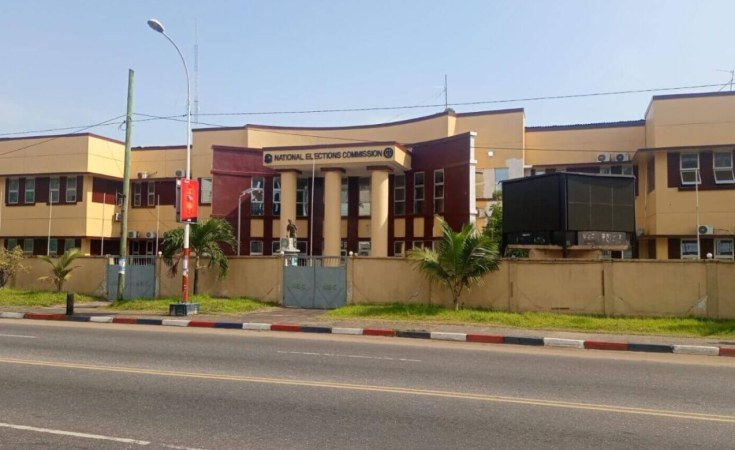Prominent women under the banner, Liberian Women Peace Summit have penned a peace manifesto, calling for peaceful 2023 Elections.
One of the joint winners of the 2011 Nobel Peace Prize, Liberian Leymah Gbowee, says Liberia's progress lies on sustenance and maintenance of peace by all citizens.
Miss Gbowee jointly won the 2011 Noble Peace Prize along with former President Ellen Johnson Sirleaf and Miss Tawakkol Karman of Yemen, "for their non-violent struggle for the safety of women and for women's rights to full participation in peace-building work."
"Liberia should stand up for her own peace because if we don't protect this peace, absolutely nobody will do it for us", she cautions.
Miss Gbowee, also founder of the Gbowee Peace Foundation Africa gave the advice here Thursday, August 17, at the Ellen Johnson Sirleaf Ministerial Complex in Oldest Congo Town during final consultation on a peace manifesto drafted by the Liberian Women Peace Summit, geared towards a peaceful 2023.
Giving an overview of the consultation, she recalls that few months ago, she met her Co-winner of the 2011 Nobel Peace Prize, former President Ellen Johnson Sirleaf on the pressing need to unite and let go of whatever difference that has kept them apart to stand up for the peace of Liberia especially, during the 2023 Elections.
"Our desire is for everyone, including residents and foreigners, will buttress their messages of peace as a requirement that the women of Liberia are desiring."
She notes that 20 ago, Liberians across the country ran helter-skelter, escaping gunshots and refusing to bow in spite of many threats, but today they are proud that Liberia is an example of post-conflict peacebuilding.
According to her, Liberia achieved that as a result of a group of people (predominantly women) who abandon their political interests, putting aside their differences, including social status and decided that the country was bigger and better than anything anyone had ever thought of.
She says Liberian women played a vital role during twenty years of peace process, so it is imperative that they continue to show leadership in peace building and sustaining process.
While recognizing the need for women to be actively engaged in politics, Gbowee urges that it's also incumbent upon women to show leadership during the process by engaging constructively and peacefully across party lines.
Signing the manifesto at the close of the peace summit, the women committed themselves to upholding the peace for growth of Liberia.
"We the women of Liberia, have come together in Monrovia under the leadership of Nobel Peace Laureates Ellen Johnson Sirleaf and Madam Leymah Gbowee to appeal to all Liberians that what binds us together is greater than what divides us.
We must unite as we did twenty years ago to make war and violence implausible; we call on citizens and participants in the political process to shun violence in all shapes and forms, and respect the dignity and life of every person within our borders"
The women further commit to ensuring that the human rights of every person participating in elections will be respected.
In remarks, Swedish Ambassador accredited to Liberia, Urban Sjostrom, says the pending election in Liberia is critical and they are impressed with the manifesto, urging the women of Liberia to continue on the path of peace.
"Women are key in the building of every nation especially, during these times; we will continue to support Liberia's peace and its developmental initiatives. We look forward to working with everyone", Ambassador Sjostrom assures.
The political officer at the United States Embassy in Monrovia, Juan D. Martinez, extols the women for the peace summit.
Mr. Martinez describes peace as a cardinal tool for nation-building, saying peace can't be achieved without the support of every citizen.
"This election is a great and major moment since the end of the civil war, this election is critical to the growth and development of the country."
The signing ceremony of the women's peace manifesto brought together prominent individuals, including representatives of foreign missions, heads of government agencies, women-led organizations, women aspirants, and members of the legislature, among others.


